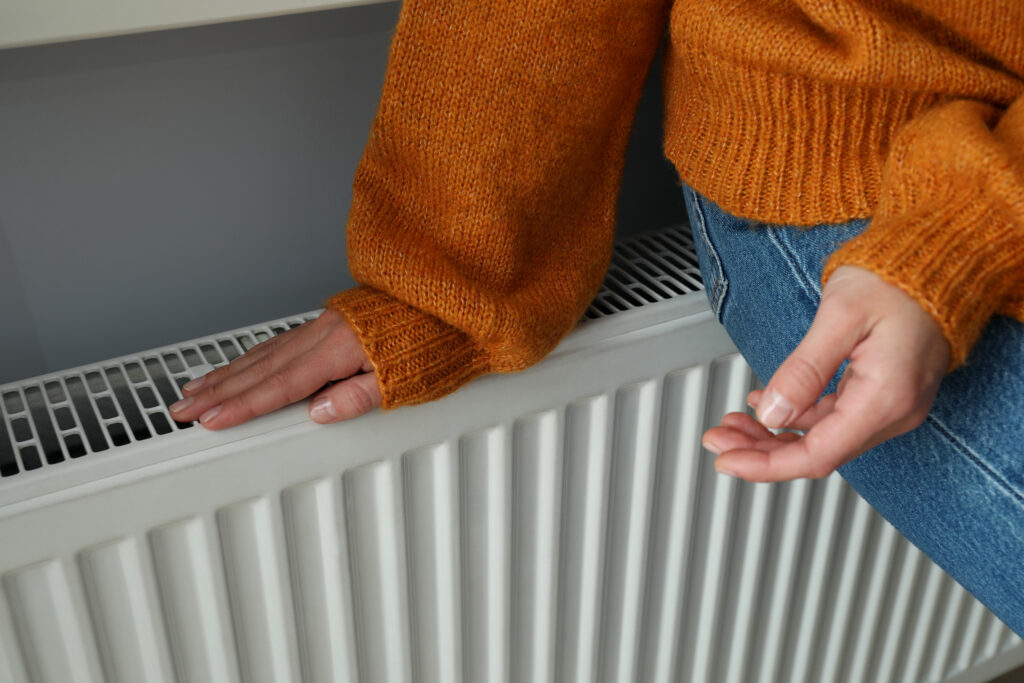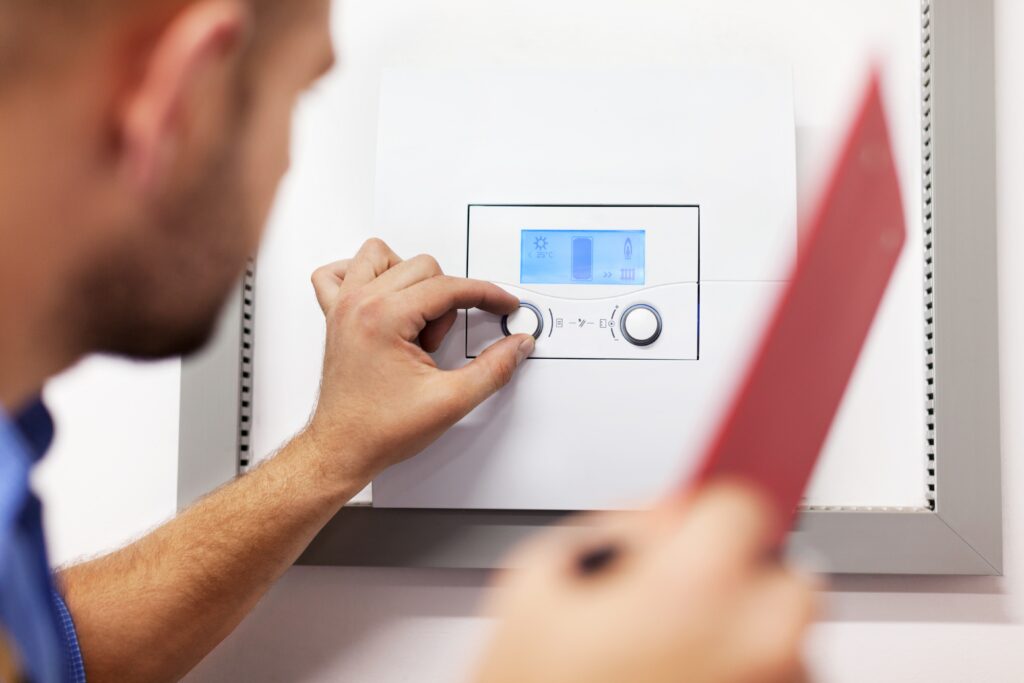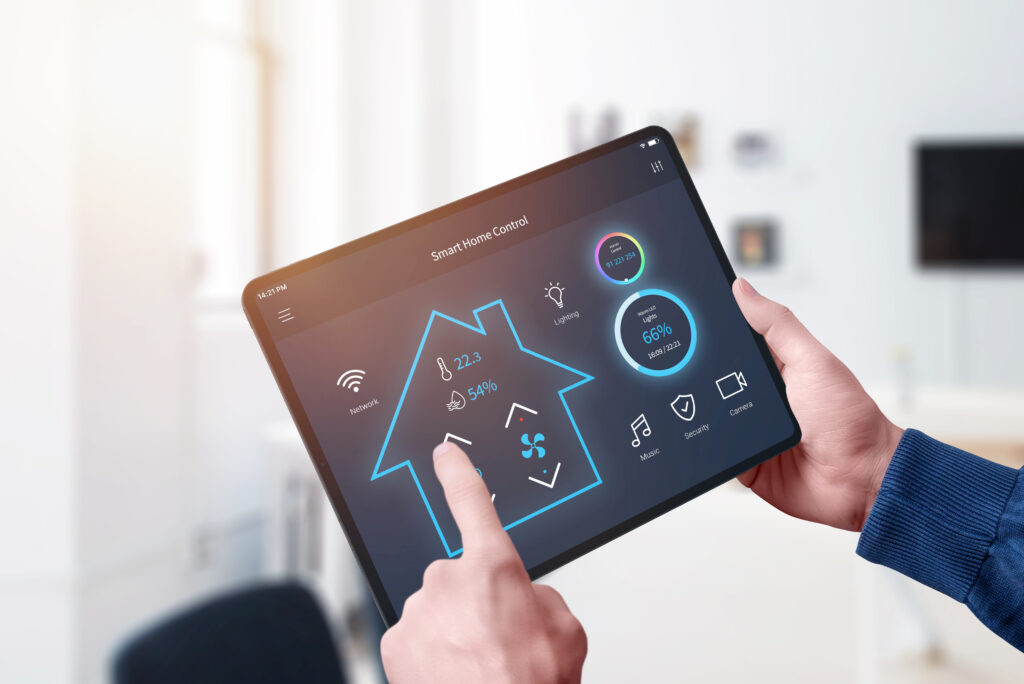Common Combination Boiler Problems and What To Do About Them
Combination boilers, or combi boilers, are popular in UK households for their efficiency and ability to provide hot water on demand. However, like any heating system, they can develop issues that leave homeowners frustrated and in need of solutions. This guide explores common problems, including issues like “no power to boiler” and “why does my boiler keep turning on and off?”, offering insights and advice for addressing these concerns.
Understanding Combination Boilers
Combi boilers are a compact, all-in-one solution for heating and hot water needs. Unlike traditional boilers, they don’t require a separate water tank or cylinder. While their design makes them convenient and space-saving, it also means that a single malfunction can disrupt both heating and hot water systems.
Common Combination Boiler Problems and How to Solve Them
No Power to Boiler
One of the most alarming issues homeowners face is when their boiler has no power. This can be due to several reasons:
- Tripped Circuit Breaker: Check your home’s electrical panel. If the breaker for the boiler has tripped, reset it. However, frequent trips may indicate a deeper electrical issue.
- Blown Fuse: Inside the boiler’s control panel, a fuse might have blown. Replacing it should restore power.
- Loose Wiring: Over time, vibrations or accidental knocks can loosen internal connections. Call a qualified technician to inspect and secure the wiring.
- Faulty PCB (Printed Circuit Board): The PCB is the brain of your boiler. If damaged, the boiler may not power on and might need replacement.
Why Does My Boiler Keep Turning On and Off?
This phenomenon, known as short cycling, can lead to inefficiency and higher energy bills. Here are the common causes:
- Thermostat Issues: A faulty or incorrectly calibrated thermostat can cause the boiler to turn on and off erratically. Ensure your thermostat is working correctly and set to the desired temperature.
- Oversized Boiler: If the boiler is too large for your home, it may produce more heat than required, causing frequent cycling.
- Low Water Pressure: Combi boilers need adequate water pressure to function properly. Check the pressure gauge and top up if needed.
- Blocked Heat Exchanger: Scale or debris buildup can overheat the boiler, causing it to shut down as a safety measure. Regular servicing can prevent this.
- Faulty Pump or Diverter Valve: These components regulate the flow of water. Malfunctions can disrupt circulation, leading to short cycling.
Other Common Combination Boiler Problems
Low Water Pressure
Low water pressure is one of the most frequently encountered issues with combination boilers. Most combi boilers require water pressure to remain within the 1 to 2 bar range for optimal performance. If the pressure falls below this level, it can lead to inefficient heating or even complete system shutdown.
The first step is to check the pressure gauge on the boiler’s control panel. If it reads below 1 bar, this indicates a problem. Common causes of low pressure include leaks in the system, which might be found in radiators, pipe joints, or the boiler itself. Inspect these areas for visible drips, damp patches, or pooling water. If you can’t locate a leak but pressure continues to drop, the issue may lie in the pressure relief valve, which could be stuck open or faulty.
Another cause might be trapped air in the system, which can be released by bleeding your radiators. Afterward, use the filling loop to repressurise the boiler to the manufacturer’s recommended levels. Persistent or sudden drops in pressure often indicate a more serious issue, such as a failing expansion vessel or an internal leak, both of which require professional diagnosis and repair.
No Hot Water but Heating Works
A frustrating issue for many homeowners is when the boiler provides heating to radiators but fails to produce hot water. This problem is often due to a faulty diverter valve. The diverter valve directs hot water either to the radiators or to your taps, depending on demand. If it gets stuck or fails, it might prioritise heating even when hot water is requested.
Another possible cause is a malfunctioning flow sensor. This sensor detects when you open a tap and signals the boiler to heat water. If the sensor is dirty or broken, it won’t trigger the boiler to produce hot water. Scale buildup in the heat exchanger can also reduce efficiency, leading to inconsistent hot water. Regular servicing can help prevent this problem by keeping components clean and in good working order.
Finally, check your thermostat settings. If your system prioritises heating over hot water, adjust the settings to balance the two needs. If these steps don’t resolve the issue, it’s best to call a heating engineer to identify and address the root cause.
Strange Noises (Kettling, Banging, or Gurgling)
Unusual noises coming from your boiler can be unsettling and often indicate underlying problems. “Kettling,” a whistling or banging sound, occurs when limescale or debris builds up on the heat exchanger, causing water to overheat and turn to steam. This problem is more common in hard water areas, where mineral deposits accumulate faster. Power flushing the system can remove these deposits and restore normal operation.
Banging noises may also point to air trapped in the system or a malfunctioning pump. Air can create blockages that disrupt water flow, while a failing pump may struggle to circulate water effectively, leading to overheating and noise. Gurgling sounds are often a sign of low water pressure or trapped air in the radiators. Bleeding the radiators or topping up the boiler’s pressure may resolve these noises.
If strange noises persist, they could indicate more severe problems, such as a failing boiler component. Timely professional intervention can prevent costly boiler repairs.
Boiler Not Igniting
A boiler that fails to ignite leaves you without heat or hot water, often at the worst possible time. Several factors can cause ignition failure. One common culprit is a disruption in the gas supply. Check your gas meter to ensure the supply is active and that you haven’t accidentally run out of credit if you’re on a prepaid meter.
A blocked condensate pipe is another frequent issue, particularly in freezing weather. When this pipe becomes clogged with ice, it prevents the boiler from functioning. Thawing the pipe and insulating it can prevent future blockages. Faulty ignition electrodes or gas valves can also prevent the boiler from lighting. These components are essential for creating the spark and regulating gas flow. If they are worn out or damaged, they need professional replacement.
Finally, check the boiler’s pressure and ensure it is within the recommended range. Low pressure can cause the boiler to lock out, preventing ignition. If these steps fail, a heating engineer can inspect the system for other causes, such as a faulty PCB or broken safety mechanisms.
Radiators Not Heating Evenly
When radiators heat unevenly, with some being warm while others remain cold, it’s typically a sign of trapped air or sludge buildup. Trapped air can be released by bleeding the radiators. Use a radiator key to open the bleed valve until water flows steadily, then close it.
If bleeding doesn’t resolve the issue, the problem may be caused by sludge or debris in the system. Over time, rust and sediment can accumulate, blocking the flow of hot water. A power flush or chemical flush can remove this buildup and restore efficient heating.
Cold spots on radiators may also indicate a malfunctioning pump, which struggles to circulate water effectively. Alternatively, check the radiator valves to ensure they’re fully open. In some cases, balancing the system—adjusting the flow rate to each radiator—can resolve uneven heating. Persistent issues may require professional attention to address underlying problems with the boiler or pipework.
By understanding these common combination boiler problems in detail, you can take the necessary steps to troubleshoot and resolve issues effectively. Regular maintenance and professional servicing remain the best ways to prevent most of these problems from occurring.
Preventative Measures to Avoid Boiler Problems
Maintaining a combination boiler in optimal condition requires regular care and attention to avoid unexpected breakdowns or inefficiencies. One of the most effective ways to ensure your boiler’s longevity is by scheduling an annual service with a qualified engineer. During this check-up, the professional will clean internal components, inspect for wear and tear, and ensure the system is operating safely. Annual servicing not only helps to detect minor issues before they escalate but also keeps your boiler working efficiently, saving money on energy bills.
In addition to servicing, it is vital to regularly monitor the pressure gauge. Combination boilers typically operate best within a specific pressure range, and fluctuations can lead to malfunctions. Repressurising the system when the gauge shows low pressure can prevent performance issues. Another useful preventative step is installing a magnetic filter. This device collects debris and sludge from the heating system, reducing the risk of blockages and improving the boiler’s overall efficiency.
If you live in a region with hard water, consider using a water softener to limit limescale buildup inside the boiler and pipework. Limescale can clog critical components such as the heat exchanger, leading to reduced efficiency and eventual system failure. For households with external condensate pipes, insulating these pipes is a simple yet highly effective way to prevent freezing during cold weather, which is a common cause of boiler shutdowns in winter.
Taking these steps consistently ensures your combination boiler remains reliable, safe, and energy-efficient throughout its lifespan. Regular attention and maintenance are key to avoiding costly repairs and ensuring peace of mind.
When to Call a Professional
While minor issues like low pressure or bleeding radiators can be resolved by homeowners, more complex problems, such as electrical faults or component failures, require professional expertise. Attempting DIY repairs on gas appliances is not only unsafe but also illegal without proper certification. Boiler installation, repairs and maintenance should only be carried out by gas safe plumbers of boiler experts.
Thanks For Reading Todays Blog From Heat-Tec
Combination boilers offer convenience and efficiency but require regular maintenance to avoid common issues like “no power to boiler” and “why does my boiler keep turning on and off?” By understanding these problems and their solutions, homeowners can enjoy reliable heating and hot water year-round. For expert advice or servicing, contact the professionals at Heat-Tec.
Frequently Asked Questions
How do I reset my combi boiler after a power failure?
Resetting your combi boiler after a power failure is usually a straightforward process. Most boilers have a reset button located on the control panel, often marked with the word “Reset” or a symbol. To reset, press and hold this button for a few seconds—usually 3 to 10 seconds—depending on the manufacturer’s guidelines. After releasing the button, the boiler should attempt to restart. If it doesn’t power up, check for persistent issues, such as a tripped circuit breaker or a blown fuse in the boiler’s electrical system. Repeated failures to reset indicate a deeper fault, which should be inspected by a qualified engineer.
Can a boiler work without power?
No, combination boilers cannot operate without power. They rely on electricity to control key components such as the pump, fan, thermostat, and ignition system. Even if your home has a functioning gas supply, the boiler cannot light or circulate water without electrical power. If your boiler loses power, check your home’s circuit breaker and ensure the boiler’s power switch is on. In areas prone to power cuts, consider installing a backup power supply or generator to keep the system running during outages.
Why does my boiler’s pressure keep dropping?
A boiler’s pressure may drop for several reasons, often indicating an underlying issue. The most common cause is a leak within the heating system, which could be from radiators, pipework, or the pressure relief valve. Inspect your radiators and pipe joints for visible water drips or damp spots. If no leaks are visible, the issue could be air escaping from the system, often due to trapped air being released through the radiators during bleeding. Alternatively, a malfunctioning expansion vessel or pressure relief valve within the boiler could cause pressure loss. Regularly checking and repressurising your boiler, as per the manufacturer’s instructions, can help maintain stability. However, persistent pressure drops require professional investigation to prevent further damage.
How often should I bleed my radiators?
Radiators should be bled at least once a year, typically before the winter season, when the heating system is used most heavily. If you notice cold spots on your radiators or hear gurgling noises when the heating is on, it’s a sign that air is trapped inside and they need bleeding. Bleeding radiators releases this trapped air, improving heating efficiency and ensuring even warmth throughout your home. After bleeding, always check your boiler’s pressure gauge, as the process can cause pressure to drop. If necessary, repressurise the system to maintain optimal performance.
What should I do if my condensate pipe freezes?
A frozen condensate pipe is a common problem during cold weather, as this pipe carries wastewater from your boiler to an external drain. When it freezes, the blockage can shut down the boiler. To thaw the pipe, locate the frozen section—typically outside—and pour warm (not boiling) water over it. Alternatively, use a warm compress to gradually melt the ice. Once thawed, reset your boiler to restore normal function. Prevent future freezing by insulating the pipe with foam lagging and ensuring it is installed with a slight slope to promote water flow.
Are combination boilers suitable for large homes?
Combination boilers are best suited for small to medium-sized homes with one or two bathrooms. Their compact design makes them ideal for properties with limited space, as they do not require a separate water tank or cylinder. However, in larger homes or properties with high hot water demand, a combi boiler may struggle to provide adequate flow when multiple taps or showers are used simultaneously. For such households, a system boiler with a separate hot water cylinder is often a more efficient choice. If you’re unsure about the right boiler for your home, consult with a professional heating engineer to assess your needs.






